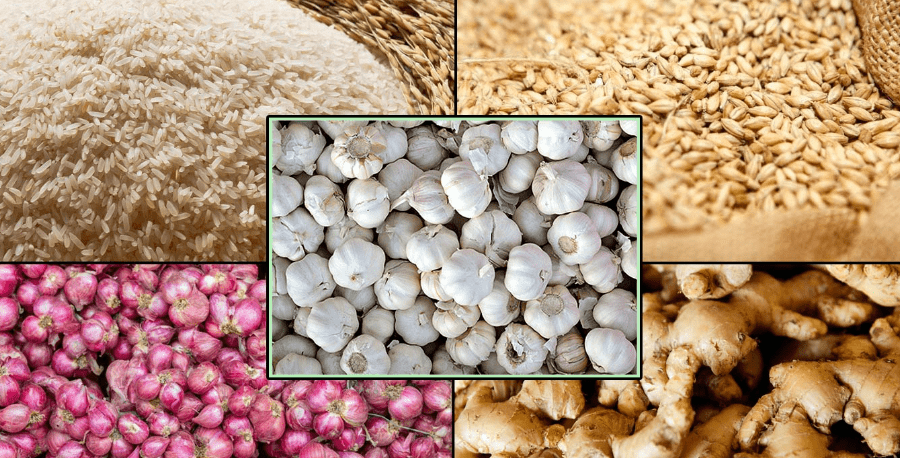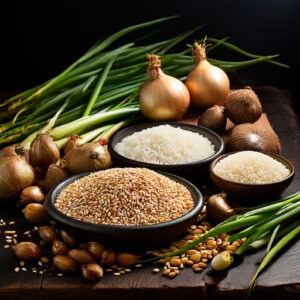Bangladesh has initiated discussions with India to secure assured annual supplies of five key food commodities, including rice, wheat, onions, ginger, and garlic. This move aims to tackle fluctuations in market prices and potential shortages within the Bangladeshi market.
Background of the Discussions
Bangladesh and India have a history of bilateral trade, especially in food commodities. Both countries have been exploring ways to enhance cooperation in this sector.
Bangladesh seeks assured supplies to stabilize prices and ensure food security for its citizens. Fluctuations in market prices and potential shortages have prompted Dhaka to seek long-term agreements.
Challenges Faced by Bangladesh
Market price fluctuations and potential shortages pose significant challenges to Bangladesh’s food security and economic stability.
India’s Export Policy and Recent Bans
India has implemented export bans on certain commodities in recent times to cater to domestic requirements. These include bans on wheat exports in May 2022 and non-basmati rice exports in July 2023.
Impact on Bangladesh’s Market
Shortages of these commodities can lead to price hikes and scarcity in the Bangladeshi market, affecting consumers and businesses alike.
Bangladesh has proposed signing a memorandum of understanding (MoU) with India to establish fixed quotas for the import of these essential commodities. This would ensure a stable supply chain.

Potential Benefits for Bangladesh
Assured supplies would stabilize prices, ensure food security, and provide a predictable market for Bangladeshi businesses.
Sensitivities surrounding the export of these commodities from India have delayed the signing of the MoU. Both sides are working to address these concerns.
Current Status of the Discussions On Food Commodity
Discussions are ongoing, with both sides working to find common ground that addresses Bangladesh’s concerns while respecting India’s export policy considerations and domestic requirements.
The discussions hold the potential for long-term cooperation between Bangladesh and India in the food commodity trade, benefiting both countries.
Conclusion
The initiative to secure assured annual supplies of key food commodities from India reflects Bangladesh’s commitment to ensuring food security and stabilizing market prices. Despite challenges, both countries are working towards a mutually beneficial agreement.
Click Here For More Latest News Articles
FAQs
- Why is Bangladesh seeking assured supplies from India? Bangladesh seeks assured supplies to stabilize prices and ensure food security for its citizens.
- What are the key commodities included in the discussions? The key commodities include rice, wheat, onions, ginger, and garlic.
- How have recent export bans by India affected Bangladesh? Recent export bans have led to market price fluctuations and potential shortages in Bangladesh.
- What are the proposed solutions to ensure stable supplies? Bangladesh has proposed signing an MoU with India to establish fixed import quotas for the commodities.
- What are the potential benefits for Bangladesh? Assured supplies would stabilize prices, ensure food security, and provide a predictable market for Bangladeshi businesses.










